Dates: June 25 – July 1, 1884
Location: Sibley Park, Mankato, Blue Earth Co., MN
Find it today: Map
From southbound US-169, take the Riverfront Drive exit, turn right on Owatonna Street, turn left on Sibley Parkway and travel to the park.
The baptisms: Camp meeting baptisms were conducted in the Minnesota River.
TENTS FOR THE MINNESOTA AND DAKOTA CAMP-MEETINGS.
WE are making arrangements to have family tents to rent at these camp-meetings, and those of our brethren who wish to rent tents will do well to speak early. Those in Minnesota will write to Eld. John Fulton, Mankato, Minn.; those in Dakota will write to Eld. A. D. Olsen, Howard City, Miner Co., D. T.
O. A. OLSEN. (MN Conference President) – Review and Herald, May 27, 1884
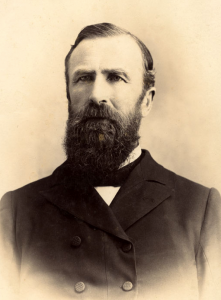
Courtesy of the
Ellen G. White Estate, Inc.
THIS meeting will be held at Mankato June 25 to July 1. The first meeting will be the opening session of the Conference and Tract Society. All our people should make it a point to be on hand at the first meeting as far as possible.
This camp-meeting will be of more than common interest. We have reached a period in the history of this work when advance steps are being taken all along the line. The final issue is upon us, and the last message of mercy will soon finish its work.
The providence of God is now opening the way in every direction as never before, calls for help most urgent and promising come from every part of the wide field. Brethren and sisters, do you fully realize our true situation? I sincerely hope you may. At the camp-meeting all these interests will be considered, plans must be laid, and measures must be taken to greatly enlarge our work, and to increase our efforts to fill the openings that the Lord is placing before us.
You cannot afford to be absent from this meeting; you cannot afford to be indifferent to the great interest of our time. Efficient help will be present to instruct us, and set before us the important duties of our time. Eld. Butler will return from Europe in time to be present; and Eld. Van Horn of Michigan, Eld. Farnsworth of Iowa, Eld. Cudney of Nebraska, and others will attend. Eld. Conradi will conduct meetings in the German language, and Eld. J. P. Rosqvist, lately from Sweden, will speak in his language. It will be the most important meeting ever held in Minnesota, and you cannot afford to stay away.
The camp-meeting will be located at West Mankato, at the junction of the Blue Earth and Minnesota Rivers, on a beautiful elevated plat of ground. The Spirit of God is moving on the hearts of the people of Mankato. The railroads are giving us better rates than at any time before, and everything appears most favorable for a good meeting. Brethren and sisters I desire that you may realize that this is no common time, and that you cannot afford to be absent. Come, bring your children, and your unconverted friends. Come to seek God, to work for God and the salvation of souls, and we shall not be disappointed, but shall have the best meeting we ever had in Minnesota.
O. A. OLSEN. (MN Conference President) – Review and Herald, June 3, 1884
MINNESOTA, ATTENTION!
I HAVE made arrangements with the publishers of the Pioneer Press at St. Paul to publish reports of our camp-meeting at Mankato to the amount of two columns or more every day during the campmeeting. These reports will give full accounts of every day’s proceedings, will give every sermon, more or less full, and all other matters of interest to the public. Through this popular channel we have a rare chance to bring our work and the truth for this time to the many thousands of readers all through the West.
Now I have a proposition to make to all our friends. If you will send us your name and P. O. address with 25 cents, we will send you the daily Pioneer Press containing the report, for five successive days, thus giving you a daily report of our camp-meeting; and if you want to send it to your friends, or any one, send us their names and P. O. addresses with the above amount, and we will send it to them. Direct all this business, and send all money to Minnesota Tract Society, Mankato, Minn. Let us hear from you at once. This privilege is not restricted to Minnesota. We shall be glad to hear from many in other States.
O. A. OLSEN. (MN Conference President) – Review and Herald, June 3, 1884
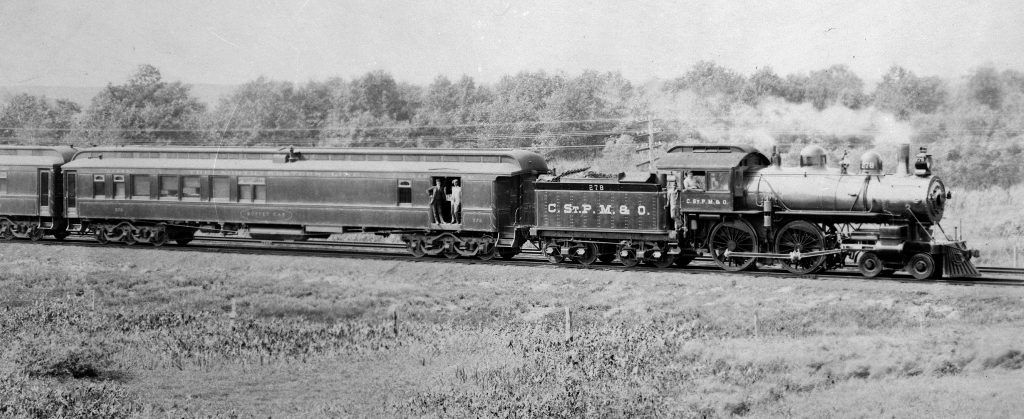
Photo: Library of Congress cph 3c18094
RATES TO THE MINNESOTA CAMP-MEETING.
WE shall have better rates to our camp-meeting this year than at any time before. The C., St. P., M., and O. R. R. will return all that come to the camp-meeting over their road for one-fifth fare. You will pay full fare coming; then you will receive a certificate on the ground which will entitle you to return for one-fifth, so that the round trip will cost you only one and one-fifth fares. We expect that the other railroads leading into Mankato will do the same.
O. A. OLSEN. (MN Conference President) – Review and Herald, June 3, 1884
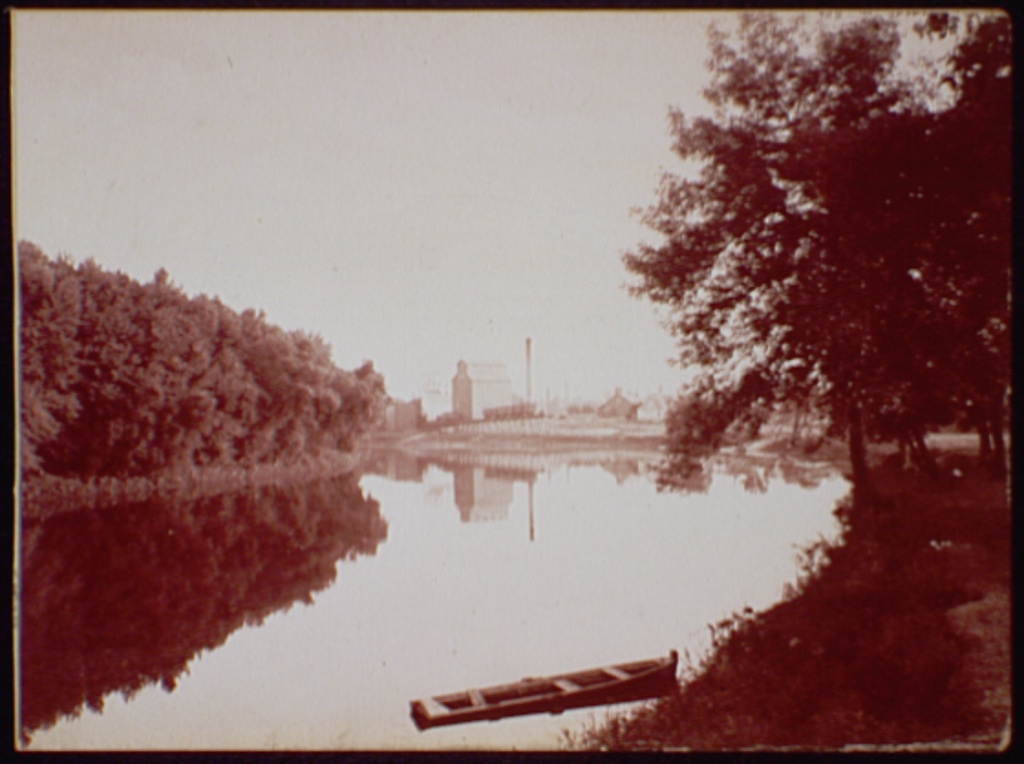
MINNESOTA, ATTENTION!
THE prospect is good for a very large gathering at the Minnesota camp-meeting. Mankato is a very accessible point to the larger part of the State, and reduced rates are given us on all the railroads centering. there. The Spirit of God is moving on the hearts of the people, and we can see the providence of God going out before us in a very marked manner. The committee, is making extensive preparations, and is striving to do all that can be done to make the meeting a success.
We are fully aware that the coming camp-meeting will be the most important ever held in the State. I sincerely hope that our brethren and sisters will feel the full importance of attending this meeting; you cannot afford to stay away. The meeting needs your presence, and you need the blessing and instruction you can get on this occasion. In view of the importance of this meeting, and in view of the fact that God’s providence is opening the field before us in every direction, yet with all this there is an extreme scarcity of laborers. We would appoint Sabbath, June 21, a day of special prayer in behalf of the camp-meeting and the cause of God in Minnesota. Brethren, we need the blessing and help of God as never before, I believe it is our privilege through Jesus to have it. And as we have the encouragement given us, that by seeking we shall obtain, we suggest that all who can consistently do so, make this day a day of fasting, that by humbling our souls, and seeking God with all our heart we may get in a position where God’s special blessing may be on our meeting and upon the cause of God in the Conference of Minnesota.
Mankato is itself a very important place, and this meeting will do much to decide the final results there. The Spirit of God is evidently moving on the hearts of the people, and the situation is becoming very favorable. Now with the special blessing of God, this meeting will be a grand victory for the work in the city of Mankato and the State at large. May God give us a spirit to enter into this work with all our hearts. “Ye shall seek me and find me, when ye shall search for me with all your heart.” Jer. 29:13.
O. A. OLSEN, Pres. Minn. Conf. – Review and Herald, June 10, 1884
A brief history of Sibley Park: The Blue Earth County Historical Society has published an excellent history of this park which provides insight as to the reason why it was an inviting site for the 1884 and 1885 MN SDA Camp Meetings. We quote in part, an article from the society’s Blue Earth County Historian (it is worth reading the entire article which starts on page 9):
The park was named after General H. H. Sibley, who established a trading post on Sibley Mound in the 1840s or 1850s. Sibley, who became Minnesota’s first governor, called his post “Sibley’s Mound.” Later, after two brothers-in-law from Virginia, Henry Jackson and Parsons King Johnson, started the settlement that would later grow into the city of Mankato, the park area became a popular farm settlement with incoming families. From the very beginning, however, the land was regarded as a potential site for a beautiful city park.
Though it is known for its beauty now, it was also involved with some terrible and grisly events. In 1862, it is believed that Sibley Park was home to Camp Lincoln, where 303 Dakota warriors were housed prior to their trials by a military tribunal in Mankato. This was at the end of the Dakota Conflict, and though Lincoln pardoned 264 of the Native Americans, another 38 were executed. Though the executions that followed did not take place at Sibley Mound, the sentenced warriors were confined there for some time before being transferred to a location closer to the execution site. This execution was the largest mass-execution in the history of the United States.
This history did not deter families from continuing to settle and thrive in the Sibley area. As Mankato blossomed, so did Sibley Park, and as more people gathered across the land, more public gatherings took place. A major part of Sibley Park’s early history was the fairs that were held there. Fairs were actually held at the park before it was a city park; in 1884, the Southern Minnesota Livestock and Fair Association set up a fair at Sibley Mound. Frank Metill, Ed Weaver, Martin Joran, Henry Himmelman, Jr., P.H. Carney, C.E. Wise, and George Pond were the fair’s chief promoters. This first fair was called “the best ever held in Minnesota” by The Mankato Free Press and had a grandstand specially built, a livestock building, and a floral hall, besides horse races at the horse track. It also had many artful items on display, including a quilt created by Mrs. R.D. Hubbard and wood carvings by Miss Clara Piper. In 1885, another fair was put on with even more exhibits by Mankato area business and industry leaders.
Sibley Park became a true city park in July of 1887, when town officials bought about 120 acres of land from the Givens family for $13,088. Later that year, the city also bought the Southern Minnesota Stock and Fairgrounds, which were close to Sibley Park. This fairground included a racing track and a grandstand.
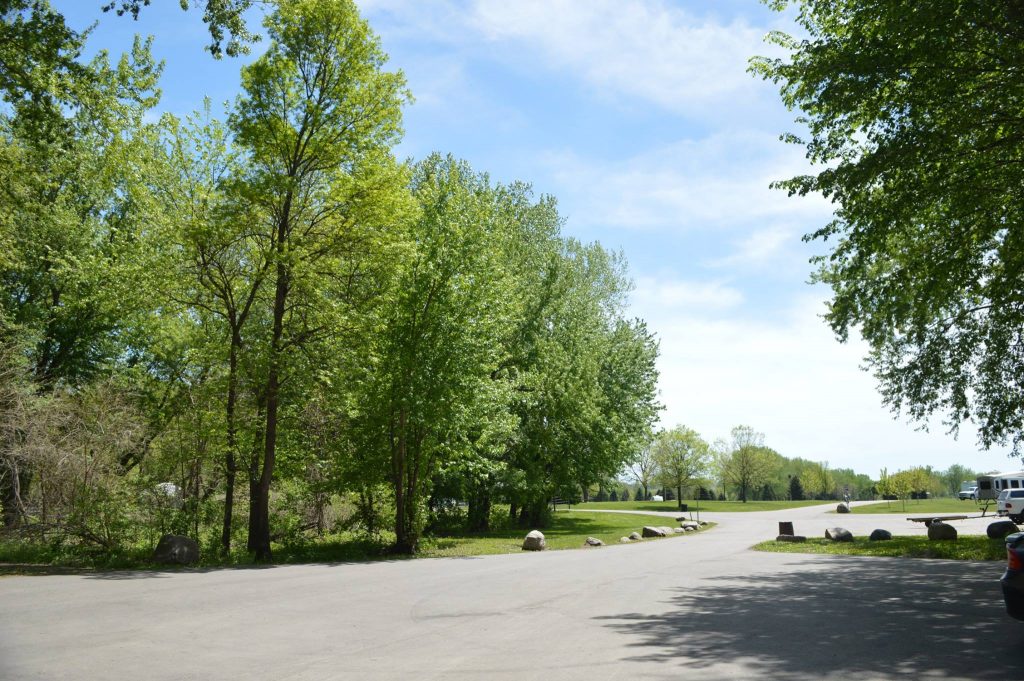
CAMP-MEETING. This annual gathering was at Mankato. The encampment was one and a half miles west of the city, in a beautiful grove on an eminence of land overlooking the town and country. The Blue Earth River ran close by one side, forming a junction with the Minnesota River a few rods below the grounds. For every purpose, we think the situation the best we ever saw. The meeting was the largest ever held by our people in the State. One hundred and twenty-three tents were pitched, and about nine hundred Sabbath-keepers encamped on the ground. Brn. Butler, Van Horn, and others were present from abroad, besides the resident ministers of the Conference.
Meetings were carried on at the same time in four different languages, English, Danish, Swedish, and German, and about thirty-two sermons were preached. Bro. Conradi took charge of the German, Brn. Hansen, Johnson, and others, of the Danish, and Bro. Rosqvist of the Swedish. Seeing these different nationalities all represented in one meeting, all united in one work, all endeavoring to push forward the third angel’s message, forcibly reminds an observer of the ancient prediction, and its present rapid fulfillment, that this message should go to nations, kindreds, tongues, and peoples. One encouraging and interesting feature of the meeting was the presence of over forty German Sabbath-keepers. Although there has been but little labor among that people in this State, yet nearly all of these have embraced the truth the past year. We noticed the same gratifying results from labor bestowed in Kansas. Where labor had been bestowed in one place, and about twelve had taken hold of the Sabbath, we recently learned that their number had increased to twenty-five. Also where the truth has been presented to them in Nebraska, encouraging results have been seen. This increase shows that faithful labor put forth among the Germans, will be as successful as among almost any nationality.
The president of the Conference, with many of the Minnesota workers in different branches, had been on the ground for a week, planning and counseling, and holding workers’ meetings. These were special occasions for seeking God, and we think their influence on the general camp-meeting was most excellent. We noticed an almost entire absence of that light, trifling, and visiting spirit which is sometimes seen at our camp-meetings. There seemed to be a sober seriousness with nearly all, and this Spirit God seemed to honor and bless. It no doubt added much to the interest and success of the meeting.
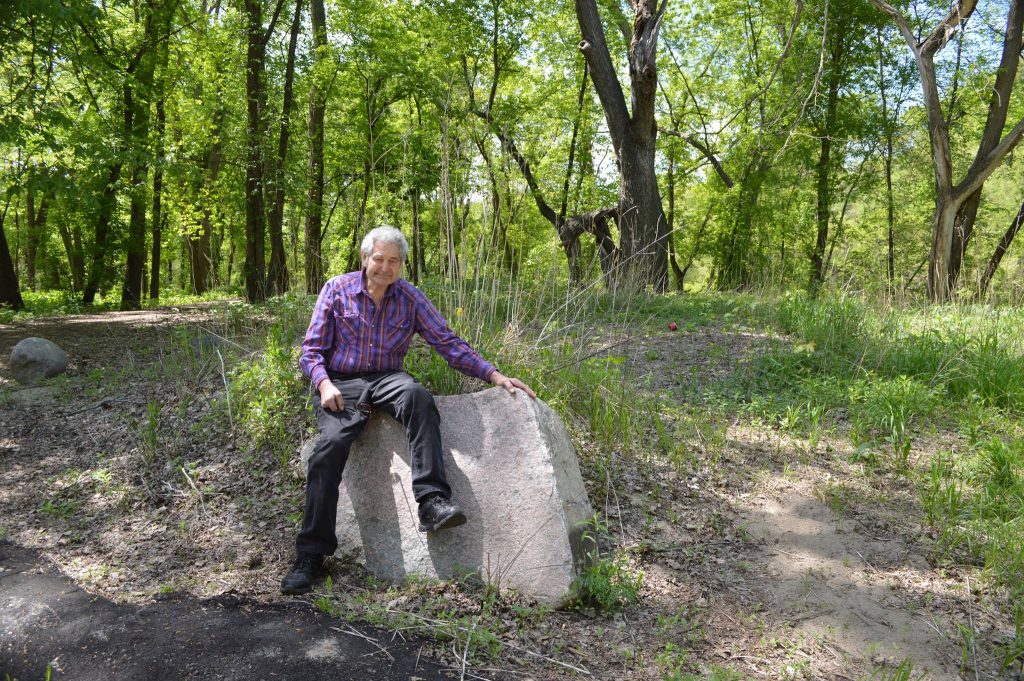
The preaching was of a nature to impress the mind with the solemnity of the work, its rise and rapid development, its present needs, both of men and means, the signs of its rapidly approaching consummation, and the devotion and holiness of character necessary to engage in it acceptably being earnestly set forth. As these points were brought out, they seemed to find a response in every heart.
When the present wants of the cause were set before the brethren, they cheerfully pledged $19,965, which includes a few thousands pledged the past winter on the same fund of $25,000, which they had voted to raise. This is to be divided as follows: $10,000 for a reserve fund and a depository; $5,000 for educational purposes; $5,000 for city missions; $2,000 for the Central European Missions; and $3,000 for the Scandinavian Mission. We never saw brethren pledge more freely and with less solicitation than here. In short, there seemed to be a desire to do this. What can show more clearly the increasing faith of the people in this message than the liberal disposition manifested to sacrifice of their means to carry it to a successful termination? But this is not the only omen of good. We see that as soon as the brethren begin to sacrifice, there is a desire to devote themselves to the cause in some way. There are therefore many more than we ever saw before who are preparing to go forth as canvassers, colporters, and agents.
Bro. Butler’s account of his European tour was most interesting; and as he set before us the crying need of the millions of the Old World who are in darkness, and that God had given to us the only truth that will save them, and thus made us responsible for their enlightenment, every heart was touched, and a hearty response was given.
The business of the Conference and Tract Society passed off with the most perfect unanimity. In the reports of each was seen a most gratifying increase of labor performed the past year. The brethren most heartily appreciate the faithful and earnest efforts of Bro. Olsen. He has worked hard, and the brethren are grateful for the labor bestowed. In most respects a thoroughness was evinced that will bring about a more healthful state of things than has been seen in Minnesota before.
The attendance from the outside was not great. On Sunday there were present 2,000 or more, who gave the closest attention to the word spoken. It seemed as if some of the seed must have fallen on good ground, and that we shall see fruit of it after many days.
There was a large number of youth and children on the ground. Bro. Van Horn held children’s meetings with them every day, in which they were instructed in the life, character, and labors of Christ, and the deceptive nature of sin and Satan. Much of his teachings also related to practical duties, giving instruction in the duties of baptism and in the service of God, so that when a general call was made, many of them moved forward in an intelligent manner.
On the Sabbath, after a most impressive sermon by Bro. Butler from Ps. 126:6, “He that goeth forth and weepeth, bearing precious seed, shall doubtless come again with rejoicing, bringing his sheaves with him,” – a call was made for those who wished to seek God for the first time, or backsliders who wished to return to God. With scarcely any urging, nearly one hundred and seventy-five responded to the call; and as these willing souls gave themselves to God, his Spirit came graciously near, and everything seemed hushed in quiet. The work was carried on in the district meetings in different parts of the camp, and most precious meetings were reported. Monday forenoon Bro. Butler preached again from Eph. 2:8, 9. The good Spirit of God came very near, and even more responded to the call than on the Sabbath before. As these precious ones gave themselves to God with penitence of heart and contrition of soul, God gave them of his blessing in a large measure. I do not think I ever witnessed a more remarkable manifestation of God’s power than at this meeting. In that congregation of nearly one thousand persons scarcely a dry eye could be seen. It seemed as though every heart was touched.
Near the close of the meeting, when a call was made for those who wished baptism to arise, sixty-nine responded; we also learned that there were some twelve or fifteen, others who desired baptism, but circumstances hindered till they should return home. The congregation then retired to the river, and these willing converts were buried with their Lord. The rite was performed by three administrators in the clear waters of the Minnesota.

The parting meeting was held Tuesday morning. And thus closed this good meeting, in some respects the most remarkable one we ever had the privilege of attending. Another great victory was gained. It was evident to all that holy angels were all through the camp. The brethren and sisters returned to their homes with faith revived and hope made bright, and with hearts filled with a determination that the work of God shall be carried farther and faster than ever before in Minnesota. To God be all the praise.
E. W. FARNSWORTH. – Review and Herald, July 15, 1884